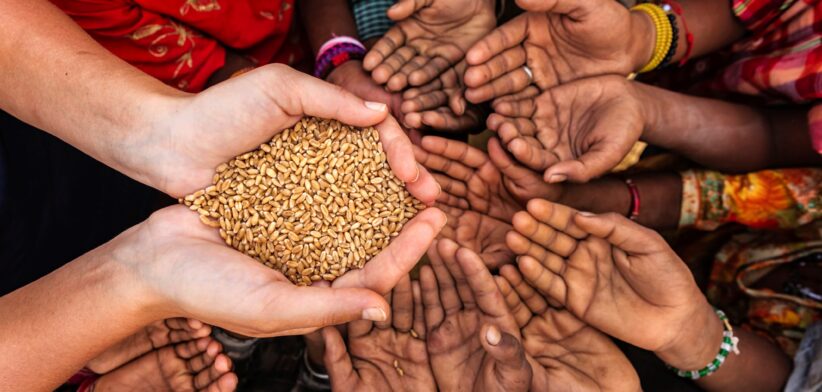Up to 21,000 people are dying of hunger each day in countries impacted by war.
A new Oxfam report, which looked at 54 conflict-affected countries, found they account for almost all of the 281.6 million people currently facing acute hunger.
Oxfam’s Food and Economic Security Lead Emily Farr said the study found between 7000 to “as many as 21,000 people” were likely dying each day from hunger in countries impacted by conflict.
Ms Farr said the report, Food Wars, found conflict had also been one of the main causes of forced displacement in these countries, which has globally reached a record level of more than 117 million people.
She said conflict was not only a primary driver of hunger, but warring parties were also actively weaponising food by deliberately targeting food, water and energy infrastructure and by blocking food aid.
“As conflict rages around the world, starvation has become a lethal weapon wielded by warring parties against international laws, causing an alarming rise in human deaths and suffering. That civilians continue to be subjected to such slow death in the 21st century, is a collective failure.”
Ms Farr said today’s food crises were largely manufactured.
“Nearly half a million people in Gaza, where 83 percent of food aid needed is currently not reaching them, and over three quarters of a million in Sudan, are currently starving as the deadly impact of wars on food will likely be felt for generations.”
She said the report also found that the majority of the countries studied (34 out of 54) were rich in natural resources, relying heavily on exporting raw products.
“For example, 95 percent of Sudan’s export earnings come from gold and livestock, 87 percent of South Sudan’s come from petroleum products, and nearly 70 percent of Burundi’s come from coffee.”
Ms Farr said in Central America mining operations had led to violent conflicts, uprooting people from their homes as they no longer became able to live in degraded and polluted environments.
She said peacebuilding and post-conflict reconstruction efforts were too often based on encouraging more foreign investment and export-related economies.
“However, this focus on economic liberalisation can instead create more inequality, suffering and the potential for conflict to resume.
“Too often, large-scale private investment, both foreign and domestic, has also added to political and economic instabilities in these countries, where investors seize control over land and water resources forcing people out of their homes.”
Ms Farr said conflict often compounded other factors like climate shocks, economic instability and inequalities to devastate people’s livelihoods.
Read the full report: Food Wars Conflict, Hunger, and Globalization, 2023








